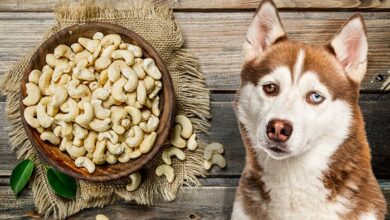Can Dogs Eat Radishes? A Simple Guide to Safe Feeding-2024

Can Dogs Eat Radishes? Yes, radishes are generally safe for dogs when given in moderation. They are non-toxic and provide a healthy, low-calorie snack option.
However, some dogs may not enjoy the spicy flavor of radishes. It’s important to monitor their reaction and introduce them gradually to see how your dog responds.Lets briefly discuss that- Can Dogs Eat Radishes?
Nutritional Benefits of Radishes for Dogs-Can Dogs Eat Radishes?
Can Dogs Eat Radishes? Yes, radishes can offer several nutritional benefits for your dog when served in moderation. These crunchy vegetables are not only low in calories but also packed with nutrients that can support your dog’s health in a variety of ways.
Fiber for Healthy Digestion
- Digestive Health: Radishes are high in fiber, which is essential for maintaining healthy digestion in dogs. The fiber content helps regulate bowel movements and can prevent constipation.
- Promotes Regularity: Fiber helps keep things moving through your dog’s digestive system, promoting regular and smooth bowel movements.
Vitamin C for Immune Support
- Boosts the Immune System: Radishes are a good source of vitamin C, an important antioxidant that helps strengthen your dog’s immune system. This vitamin can protect cells from damage and support the overall health of your pet.
- Supports Skin Health: Vitamin C also contributes to maintaining healthy skin, which is essential for your dog’s well-being.
Potassium for Heart and Muscle Health
- Supports Heart Function: Potassium is vital for your dog’s heart health. It helps maintain proper heart rhythm and function.
- Aids Muscle Function: Potassium also plays a key role in muscle function, which is important for your dog’s strength and activity levels.
Low-Calorie Option for Weight Management
- Perfect for Weight Management: If your dog is on a weight management plan or needs to maintain a healthy weight, radishes are a great choice. They are low in calories, making them a satisfying yet healthy snack that won’t contribute to excess weight gain.
- Great for Treating Guilt-Free: Since radishes are low in calories, they make an excellent snack alternative to higher-calorie treats, helping your dog stay fit while still enjoying a tasty snack.
Key Takeaways:
- Fiber in radishes supports healthy digestion and prevents constipation.
- Vitamin C boosts your dog’s immune system and promotes skin health.
- Potassium aids in heart health and muscle function.
Low in calories, radishes are a great choice for dogs on a weight management plan.
Can Dogs Eat Radishes? When offered in moderation, radishes can be a healthy and nutritious addition to your dog’s diet, providing essential nutrients that support overall health.
Risks of Feeding Radishes to Dogs
Can Dogs Eat Radishes? While radishes offer many nutritional benefits, they also come with some potential risks, especially when not served properly or in moderation. It’s important to be aware of these risks to ensure your dog enjoys radishes safely.
Spicy Flavor and Stomach Irritation
- Irritation for Sensitive Dogs: Radishes have a peppery, spicy flavor that may irritate your dog’s stomach, especially if they have a sensitive digestive system.
- Mild Discomfort: If your dog is sensitive to spicy foods, they may experience mild stomach upset, including discomfort or nausea after eating radishes.
Digestive Issues from Overeating
- Gas and Bloating: Radishes are high in fiber, which is great for digestion, but overeating them can lead to gas or bloating. This can cause your dog to feel uncomfortable or distended.
- Diarrhea: Too many radishes can also cause diarrhea, especially if your dog is not used to high-fiber foods. It’s best to introduce radishes gradually into your dog’s diet.
Choking Hazard from Large Pieces
- Risk for Small Dogs: Large pieces of radishes can pose a choking risk, especially for smaller dogs. Radishes should be cut into small, bite-sized pieces to avoid this danger.
- Prevent Accidents: Always ensure that radishes are properly cut and manageable for your dog to chew, particularly if they are on the smaller side.
Key Takeaways:
- Radishes have a spicy flavor that may irritate sensitive dogs.
- Overeating radishes can lead to gas, bloating, or diarrhea.
- Large pieces of radishes pose a choking hazard, particularly for small dogs.
Can Dogs Eat Radishes? Ok, by serving radishes in moderation and following proper preparation steps, you can avoid these potential risks and provide a healthy treat for your dog.
How to Safely Serve Radishes to Your Dog
Can Dogs Eat Radishes? Yes, radishes can be a healthy treat for dogs when prepared correctly. It’s important to follow specific guidelines to ensure your dog can enjoy them safely and without any issues.
1. Wash Radishes Thoroughly
- Remove Contaminants: Radishes often come with dirt, pesticides, and other residues on their skins. It’s essential to wash them thoroughly under running water to remove any harmful substances.
- Organic Radishes: If possible, choose organic radishes to reduce the risk of chemical exposure.
- Peel When Necessary: If your dog is sensitive to the skin of radishes, consider peeling them to ensure the inside is clean and free from contaminants.
2. Slice Radishes into Small, Manageable Pieces
- Avoid Choking Hazards: Radishes are crunchy and can be tough to chew, so it’s crucial to cut them into small, bite-sized pieces, particularly if your dog is small or not used to eating crunchy vegetables.
- Appropriate Size: For small dogs, slice the radish into thin discs or small cubes, making it easier for them to chew and swallow without risk of choking.
- Easy to Chew: If you have a larger dog, you can serve them slightly bigger pieces, but still make sure they are manageable for your dog’s chewing ability.
3. Serve Raw or Lightly Steamed
- Raw Radishes: Raw radishes are a great option as they retain most of their nutrients and are crunchy, which can help with your dog’s dental health.
- Lightly Steamed: If you prefer to cook the radishes, steaming them lightly for a few minutes helps soften them, making them easier to chew. Avoid boiling or overcooking them, as this can diminish the nutritional value.
- No Additives: Never add salt, butter, or any spices to radishes when serving them to your dog. These ingredients can be harmful to dogs and may upset their stomach.
4. Start with a Small Amount
- Introduce Gradually: When adding radishes to your dog’s diet, start by offering just a small piece. This allows you to monitor how your dog’s digestive system reacts to the new food.
- Watch for Reactions: After feeding, observe your dog for any signs of digestive upset, such as diarrhea, vomiting, or excess gas. These symptoms may indicate that your dog isn’t tolerating the radishes well.
- Increase Gradually: If your dog handles the small amount well, you can gradually offer more in future servings, but always keep the portion size moderate.
5. Know Your Dog’s Specific Needs
- Sensitive Dogs: If your dog has any known food sensitivities, allergies, or digestive issues, it’s better to consult your vet before introducing radishes into their diet. Dogs with sensitive stomachs may have difficulty digesting raw or fibrous foods.
- Portion Control: Even if your dog enjoys radishes, remember that they should only be given as an occasional treat, not as a regular part of their diet. Radishes are low in calories, but overfeeding can cause digestive issues.
Key Takeaways:
- Wash thoroughly to ensure radishes are clean and free from harmful chemicals.
- Cut into small pieces to avoid choking and ensure easy chewing.
- Serve radishes raw or lightly steamed, without any spices or additives.
Introduce gradually and monitor your dog for any signs of discomfort or digestive upset.
Can Dogs Eat Radishes? By following these guidelines, you can ensure that your dog enjoys radishes safely as a healthy, crunchy treat that complements their balanced diet.
When to Avoid Feeding Radishes to Dogs
Can Dogs Eat Radishes? While radishes are generally safe for most dogs, there are specific situations where you should avoid feeding them to your dog. It’s essential to know when to skip this crunchy treat to prevent any health issues.
1. If Your Dog Has Digestive Problems or Sensitivities
- Sensitive Stomach: Dogs with sensitive stomachs or existing digestive issues, such as irritable bowel syndrome (IBS) or frequent gastrointestinal upset, may have trouble digesting radishes. The fiber and spicy flavor may worsen their condition, causing bloating, gas, or diarrhea.
- Monitor for Signs: If your dog shows signs of discomfort after eating radishes, such as excessive gas or a more noticeable change in stool consistency, it’s best to avoid this vegetable.
2. If Your Dog Is a Puppy or a Small Breed
- Puppies and Small Dogs: Young puppies or small dog breeds may have a harder time digesting certain foods, including radishes. Their smaller stomachs and more delicate digestive systems make them more prone to choking hazards and digestive upset.
- Choking Risk: Radishes can be tough and crunchy, which could be a choking risk for smaller dogs. It’s essential to cut them into tiny, manageable pieces if you decide to serve them, but it’s better to avoid them entirely for puppies or very small dogs.
3. If Your Dog Experiences Adverse Reactions
- Signs of Discomfort: If your dog shows any signs of distress after eating radishes, such as vomiting, diarrhea, or excessive drooling, stop feeding them immediately.
- Consult Your Vet: In case of persistent symptoms, it’s essential to consult with your veterinarian. They can help determine whether the issue is related to the radishes or if it’s a more severe digestive concern.
Key Takeaways:
- Avoid radishes if your dog has digestive sensitivities or a known history of stomach issues.
- Small breeds and puppies should not be given radishes, as they can be hard to digest and pose a choking hazard.
- Stop feeding radishes if you notice any adverse reactions, such as vomiting or diarrhea, and consult your vet for guidance.
Can Dogs Eat Radishes? By understanding these guidelines, you can ensure that your dog stays safe and healthy while enjoying a variety of treats.
Dog-Friendly Alternatives to Radishes
Can Dogs Eat Radishes? While radishes can be a healthy, crunchy snack for dogs, there are many other dog-friendly alternatives that provide similar benefits. Here are some great options to consider when looking for healthy treats for your furry friend.
1. Carrots
- Crunchy & Nutrient-Rich: Carrots are an excellent choice for dogs due to their crunchy texture and high nutritional value. They’re full of vitamins like vitamin A, which is great for your dog’s eyes and immune system.
- Good for Teeth: The natural crunchiness of carrots helps clean your dog’s teeth and gums, reducing plaque and tartar buildup.
- Easy to Serve: Simply slice them into small pieces for your dog to enjoy as a safe and nutritious treat.
2. Cucumbers
- Low-Calorie & Hydrating: Cucumbers are low in calories, making them a perfect snack for dogs on a weight management plan. They also have high water content, which helps keep your dog hydrated, especially on hot days.
- Gentle on the Stomach: Cucumbers are easy on your dog’s digestive system, making them a great alternative if your dog has a sensitive stomach.
- Refreshing & Crunchy: They’re light, crunchy, and refreshing, providing a satisfying texture without being too heavy for your dog.
3. Apples
- Fiber & Antioxidants: Apples are rich in fiber and antioxidants, which help promote healthy digestion and support your dog’s immune system. They also have a natural sweetness that many dogs love.
- Remove the Seeds: Always remove the seeds before feeding apples to your dog, as they contain cyanide, which can be harmful in large amounts.
- Great for Teeth: The crunch of apples helps clean your dog’s teeth and gums while providing a tasty treat.
4. Sweet Potatoes
- Nutrient-Packed & Safe: Sweet potatoes are an excellent source of vitamins, including vitamin A and C, which support your dog’s immune system and overall health.
- Great for Digestion: High in fiber, sweet potatoes help with digestion and can be beneficial for dogs with sensitive stomachs.
- Versatile & Delicious: You can serve sweet potatoes boiled or baked (without any added seasonings or butter) as a nutritious snack or mixed into their regular food.
Key Takeaways:
- Carrots are crunchy, nutrient-packed, and great for your dog’s dental health.
- Cucumbers are hydrating, low-calorie, and easy on the stomach, making them perfect for hot days.
- Apples provide fiber and antioxidants but always remove the seeds before offering them to your dog.
Sweet Potatoes are a nutrient-rich, digestive-friendly option that many dogs enjoy.
These alternatives to radishes can offer a variety of textures and flavors while ensuring your dog stays healthy and happy!




